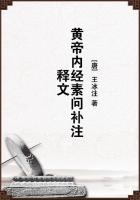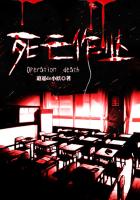THE ENTRY OF THE SULTAN
Meantime Tetuan was looking for the visit of His Shereefian Majesty, the Sultan Abd er-Rahman.He had been heard of about four hours away, encamped with his Ministers, a portion of his hareem, and a detachment of his army, somewhere by the foot of Beni Hosmar.His entry was fixed for eight o'clock next morning, and preparations for his coming were everywhere afoot.All other occupations were at a standstill, and nothing was to be heard but the noise and clamour of the cleansing of the streets, and the hanging of flags and of carpets.
Early on the following morning a street-crier came, beating a drum, and crying in a hoarse voice, "Awake! Awake! Come and greet your Lord!
Awake! Awake!"
In a little while the streets were alive with motley and noisy crowds.
The sun was up, if still red and hazy, and sunlight came like a tunnel of gold down the swampy valley and from over the sea; the orange orchards lying to the south, called the gardens of the Sultan, were red rather than yellow, and the snowy crests of the mountain heights above them were crimson rather than white.In the town itself the small red flag that is the Moorish ensign hung out from every house, and carpets of various colours swung on many walls.
The sun was not yet high before the Sultan's army began to arrive.
It was a mixed and noisy throng that came first, a sort of ragged regiment of Arabs, with long guns, and with their gun-cases wrapped about their heads--a big gang of wild country-folk lately enlisted as soldiers.They poured into the town at the western gate, and shuffled and jostled and squeezed their way through the narrow streets firing recklessly into the air, and shouting as they went, "Abd er-Rahman is coming! The Sultan is coming! Dogs! Men! Believers!
Infidels! Come out! come out!"
Thus they went puffing along, covered with dust and sweltering in perspiration, and at every fresh shot and shout the streets they passed through grew denser.But it was a grim satire on their lawless loyalty that almost at their heels there came into the town, not the Sultan himself, but a troop of his prisoners from the mountains.Ten of them there were in all, guarded by ten soldiers, and they made a sorry spectacle.They were chained together, man to man in single file, not hand to hand or leg to leg but neck to neck.So had they walked a hundred miles, never separated night or day, either sleeping or waking, or faint or strong.The feet of some were bare and torn, and dripping blood; the faces of all were black with grime, and streaked with lines of sweat.And thus they toiled into the streets in that sunlight of God's own morning, under the red ensigns of Morocco, by the many-coloured carpets of Rabat, to the Kasbah beyond the market-place.They were Reefians whose homes the Sultan had just stripped, whose villages he had just burnt, whose wives and children he had just driven into the mountains.And they were going to die in his dungeons.
It was seven o'clock by this time, and rumour had it that the Sultan's train was moving down the valley.From the roofs of the houses a vast human ant-hill could be seen swarming across the plain in the distance.Then came some rapid transformations of the scene below.First the streets were deserted by every decent blue jellab and clean white turban within range of sight.
These presently reappeared on the roofs of the principal thoroughfare, where groups of women, closely covered in their haiks, had already begun to congregate with their dark attendants.
Next, a body of the townsmen who possessed firearms mounted guard on the walls to protect the town from the lawlessness of the big army that was coming.Then into the Feddan, the square marketplace, came pouring from their own little quarter within its separate walls a throng of Jewish people, in their black gabardines and skull-caps, men and women and children, carrying banners that bore loyal inscriptions, twanging at tambourines and crying in wild discords, "God bless our Lord!""God give victory to our Lord the Sultan!"The poor Jews got small thanks for such loyalty to the last of the Caliphs of the Prophet.Every ragged Moor in the streets greeted them with exclamations of menace and abhorrence.Even the blind beggar crouching at the gate lifted up his voice and cursed them.
"Get out, you Jew! God burn your father! Dogs, take off your slippers--Abd er-Rahman is coming!"Thus they were scolded and abused on every side, kicked, cuffed, jostled, and wedged together well-nigh to suffocation.
Their banners were torn out of their hands, their tambourines were broken, their voices were drowned, and finally they were driven back into their Mellah and shut up there, and forbidden to look upon the entry of the Sultan even from their roofs.
And the vagabonds and ragamuffins among the faithful in the streets, having got rid of the unbelievers had enough ado to keep peace among themselves.They pushed and struggled and stormed and cried and laughed and clamoured down this main artery of the town through which the Sultan's train must pass.Men and boys, women also and young girls, donkeys with packs, bony mules too, and at least one dirty and terrified old camel.It was a confused and uproarious babel.
Angry black faces thrust into white ones, flashing eyes and gleaming white teeth, and clenched fists uplifted.
Human voices barking like dogs, yelping like hyenas, shrill and guttural, piercing and grating.Prayings, beggings, quarrellings, cursings.
"Arrah! Arrah! Arrah!"
"O Merciful! O Giver of good to all!"














